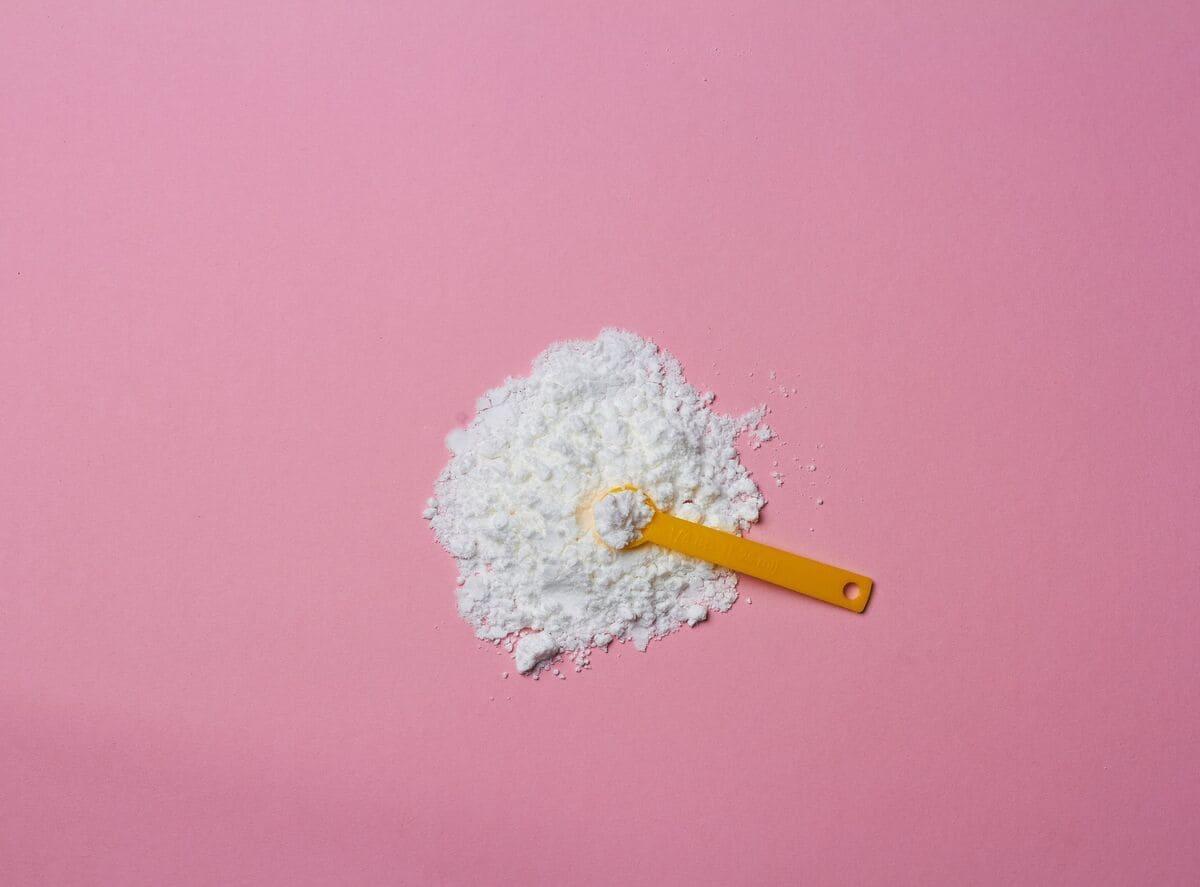Creatine Monohydrate vs. HCL: Which Is the Best Creatine for Strength Training?

February 28, 2024
When it comes to boosting strength and enhancing athletic performance, creatine stands out as one of the most popular and effective supplements available. Among the various forms of creatine, Creatine Monohydrate and Creatine HCL are frequently debated as the best creatine options for strength training enthusiasts. Understanding the differences between these two can help you make an informed decision to maximize your workout results. In this comprehensive comparison, we’ll delve into the benefits, effectiveness, and suitability of each type to determine which one truly deserves the title of the best creatine for your strength training regimen.
Understanding Creatine: The Basics
Before diving into the comparison, it’s essential to grasp what creatine is and how it works. Creatine is a naturally occurring compound found in small amounts in certain foods and synthesized by the body, primarily in the liver, kidneys, and pancreas. It plays a crucial role in energy production, particularly during high-intensity, short-duration exercises like weightlifting and sprinting.
How Creatine Enhances Strength
- ATP Production: Creatine phosphate helps regenerate adenosine triphosphate (ATP), the primary energy carrier in cells, allowing for sustained muscle contractions.
- Increased Muscle Mass: By facilitating more intense workouts, creatine can lead to greater muscle hypertrophy over time.
- Improved Recovery: Creatine aids in reducing muscle damage and inflammation, promoting faster recovery between training sessions.
Understanding these fundamentals sets the stage for evaluating which form of creatine—Monohydrate or HCL—stands out as the best creatine supplement for your strength training goals.
Creatine Monohydrate: The Classic Choice
Creatine Monohydrate is the most researched and widely used form of creatine. Its long-standing presence in the supplement industry has established it as a reliable and effective option for athletes and fitness enthusiasts alike.
Benefits of Creatine Monohydrate
- Proven Effectiveness: Numerous studies have confirmed that Creatine Monohydrate significantly enhances strength, power, and muscle mass.
- Cost-Effective: It is generally more affordable compared to other creatine forms, making it accessible for many users.
- Versatility: Suitable for various training programs, from bodybuilding to high-intensity interval training (HIIT).
Potential Drawbacks
- Water Retention: Some users experience bloating or water retention, which can be uncomfortable.
- Solubility Issues: Creatine Monohydrate may not dissolve as easily in water, potentially leading to stomach discomfort for some individuals.
Tips for Maximizing Benefits
- Loading Phase: Start with a loading phase of 20 grams per day for 5-7 days, followed by a maintenance dose of 5 grams daily.
- Consistent Intake: Take creatine consistently to maintain elevated muscle creatine levels.
- Hydration: Ensure adequate water intake to mitigate potential bloating and enhance creatine absorption.
Creatine HCL: The New Contender
Creatine Hydrochloride (HCL) is a newer form of creatine that has gained popularity for its purported benefits over the traditional Monohydrate form. Marketed as a more soluble and easier-to-digest alternative, Creatine HCL aims to address some of the common issues associated with Creatine Monohydrate.
Advantages of Creatine HCL
- Enhanced Solubility: Creatine HCL dissolves more readily in water, reducing the likelihood of stomach discomfort and bloating.
- Lower Dosage Required: Due to its higher solubility, smaller doses are needed to achieve similar effects, potentially making it more efficient.
- Improved Absorption: Better absorption rates may lead to quicker and more noticeable results.
Considerations and Drawbacks
- Higher Cost: Creatine HCL is typically more expensive than Creatine Monohydrate.
- Limited Research: While promising, Creatine HCL lacks the extensive research backing that Monohydrate has accumulated over decades.
User Experience
Many users report fewer digestive issues and a more comfortable supplementation experience with Creatine HCL. Additionally, the smaller serving size can be more convenient for those who dislike taking large doses of powder.
Which Is the Best Creatine for Strength Training?
Choosing between Creatine Monohydrate and Creatine HCL depends on your specific needs, preferences, and budget. Here’s a breakdown to help you decide which form of creatine might be the best creatine supplement for your strength training goals.
Performance and Effectiveness
- Creatine Monohydrate: Backed by extensive research, it reliably enhances strength, power, and muscle mass. It’s the gold standard and considered the best creatine for those seeking proven results.
Our Top Recommendations

Optimum Nutrition Micronized Creatine Monohydrate Powder
Micronized for easy mixing, supports muscle growth and endurance.
See on Amazon$0.35 per 5g serving

Nutricost Creatine Monohydrate Micronized Powder
Third-party tested, non-GMO, 5g of pure creatine per serving.
See on Amazon$0.2 per 5g serving

NSF Certified, supports muscle power and recovery.
See on Amazon$0.46 per 5g serving

ProMix Creatine Monohydrate Powder
Micronized, additive-free, ideal for performance and recovery.
See on Amazon$0.36 per 5g serving

NOW Foods Sports Nutrition Unflavored
100% pure creatine, GMP certified, boosts strength and endurance.
See on Amazon$0.2 per 5g serving
- Creatine HCL: While promising, it lacks the comprehensive research that Monohydrate enjoys. It may offer similar benefits with potentially fewer side effects.
Cost and Accessibility
- Creatine Monohydrate: More affordable and widely available, making it a practical choice for most individuals.
- Creatine HCL: Higher cost may be a barrier for some, but the enhanced solubility and reduced dosage could offset the expense for others.
Convenience and Tolerance
- Creatine Monohydrate: May cause bloating or stomach discomfort for sensitive individuals.
- Creatine HCL: Better solubility and absorption can make it more comfortable for those with digestive sensitivities.
Recommendations
- For Beginners: Creatine Monohydrate is often recommended due to its proven effectiveness and cost-efficiency.
- For Sensitive Stomachs: Creatine HCL might be the better option to avoid digestive issues.
- For Cost-Conscious Users: Stick with Creatine Monohydrate to get the best creatine without breaking the bank.
Practical Tips for Choosing and Using Creatine
To ensure you’re selecting the best creatine for your strength training needs and using it effectively, consider the following actionable steps:
1. Assess Your Goals
- Strength and Power: Both forms can enhance strength, but Monohydrate has more evidence supporting its efficacy.
- Muscle Growth: Creatine Monohydrate is highly effective for hypertrophy.
- Workout Comfort: If you experience bloating, consider trying Creatine HCL.
2. Determine Your Budget
- Affordable Options: Creatine Monohydrate is typically the most budget-friendly.
- Willing to Invest More: If you prefer potentially fewer side effects, Creatine HCL is worth the extra cost.
3. Check Purity and Quality
- Third-Party Testing: Look for supplements that have been third-party tested for purity and quality.
- Reputable Brands: Choose products from well-known brands to ensure you’re getting the best creatine.
4. Follow Dosage Guidelines
- Monohydrate Loading Phase: 20 grams per day for the first week, then 5 grams daily.
- HCL Dosage: Generally, 1-2 grams per day suffices due to higher solubility.
5. Stay Consistent
- Daily Intake: Consistency is key to maintaining elevated muscle creatine levels.
- Combine with Training: Pair creatine supplementation with a structured strength training program for optimal results.
6. Monitor Your Progress
- Track Strength Gains: Keep a workout log to monitor improvements in strength and performance.
- Adjust as Needed: If you experience side effects or lack of progress, consider switching forms or consulting a healthcare professional.
For a detailed supplementation plan, refer to our creatine usage guide.
Conclusion
When it comes to choosing between Creatine Monohydrate and Creatine HCL, both forms offer distinct advantages that cater to different needs and preferences. Creatine Monohydrate remains the best creatine option for those seeking a cost-effective, well-researched supplement to enhance strength and muscle mass. Its proven track record and affordability make it a staple in many strength training routines. On the other hand, Creatine HCL provides a promising alternative for individuals who prioritize solubility and digestive comfort, albeit at a higher price point and with less extensive research backing.
Ultimately, the best creatine for you depends on your specific goals, budget, and how your body responds to supplementation. By understanding the differences and benefits of each form, you can make an informed decision that aligns with your strength training objectives. Don’t forget to consult with a healthcare professional before starting any new supplement regimen to ensure it’s the right fit for your health and fitness journey.






